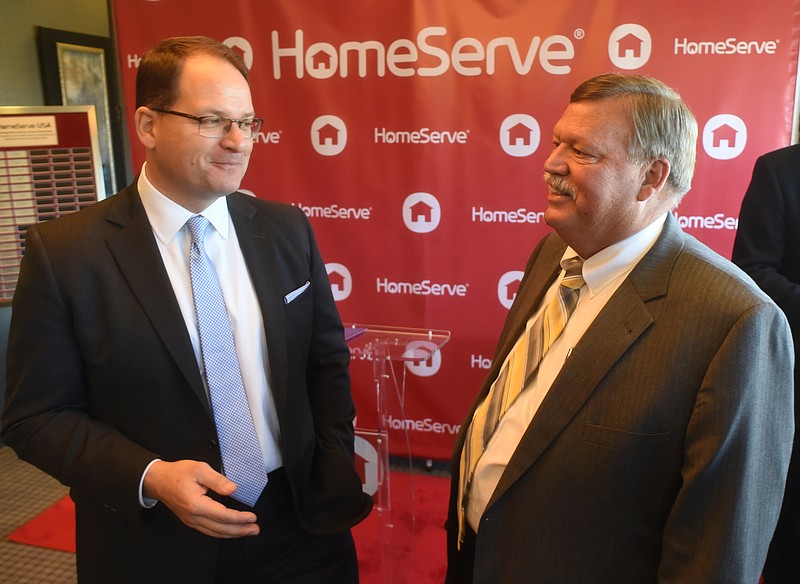When we think of tax break agreements that pick winners and losers in local business, we get - in the recent words of former FBI Director James Comey on the bureau's possible affect on the 2016 presidential election - "mildly nauseous."
Many Chattanooga and Hamilton County businesses exist and have existed, and have been consistent in hiring and pay and community involvement, and never had a payment-in-lieu-of-taxes (PILOT) agreement.
That said, we understand why they're done and the competition for business that forces such tax breaks.
Earlier this week, one such PILOT was approved by the Chattanooga City Council and the Hamilton County Commission for HomeServe (a United Kingdom-based company that sells major household repair plans to homeowners), which plans to expand both its physical presence and its number of employees.
The company first located in Chattanooga in 2010 and expanded in 2013, with one official calling its location here "a no-brainer" and a city that "embraced us more than any other city we looked at."
As such, HomeServe didn't seem like a city that would leave if it didn't get a PILOT, but it asked and our governing bodies acceded.
However, with some prudent language and with some amendments suggested in part by the astute Accountability for Taxpayers Money group, the agreements for both governments are better than they might have been.
The agreement with both is for five years, not 10 or 30. The PILOT with the county eliminates the property tax HomeServe would pay for only one year and gradually gets up to half that tax by the end of the agreement. Meanwhile, while the county will lose $90,698 in property taxes, it will reap more than twice that amount in property taxes for schools and in economic development fees (which it splits with the city).
The city amended its agreement to stipulate that the company would continue to operate for three years beyond the agreement and amended the "clawback" language that spells out what action the body could take if the company does not live up to its agreement.
HomeServe, for its part, will add 192 employees - most of them averaging $17 per hour - to its current contingent of more than 300.
